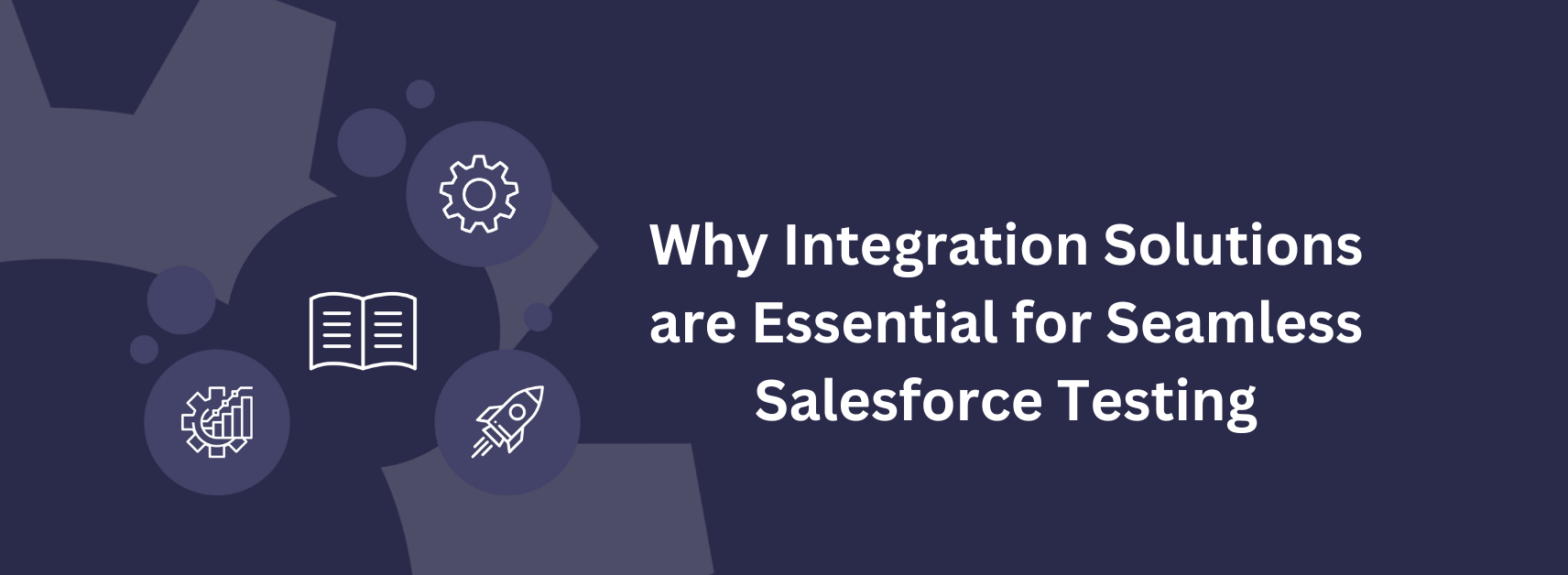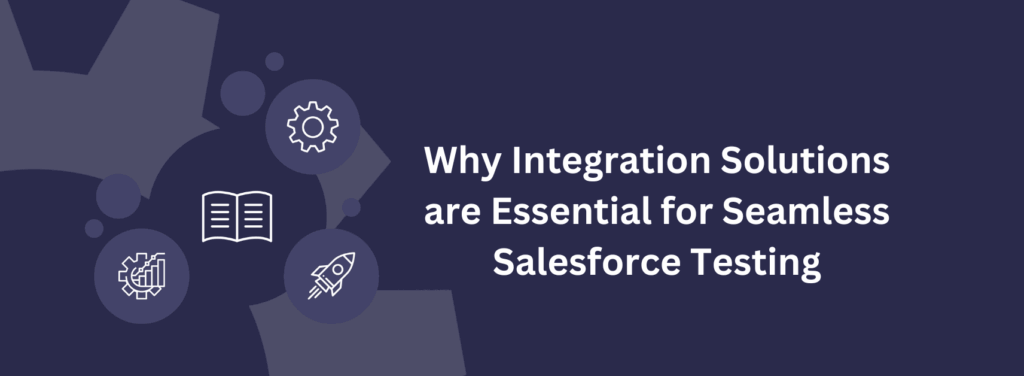When your Salesforce environment is connected to dozens, or even hundreds, of applications and systems, seamless integrated solutions isn’t just a convenient upgrade — it’s mission-critical. Without the right integration solutions in place, QA teams face brittle tests, mismatched data, and time-consuming rework that slows down releases and raises risk.
To meet the demands of modern software development, organizations need reliable, flexible, user-friendly integrated solutions that work hand-in-hand with Salesforce — and with their testing tools. In today’s blog, we’re breaking down why integration can be so challenging and how the right testing approach can streamline everything from test data management to cross-browser testing.
Testing Challenges: Complex Systems, Constant Change
Most enterprise Salesforce instances don’t live in a vacuum; they’re tightly coupled with ERP platforms, CRMs, payment gateways, analytics engines, and more. Each connection point introduces potential problems if not properly addressed in your testing strategy.
The most common pain points in testing complex Salesforce environments include:
- Data Silos: Inconsistent or missing test data from integrated systems can break automated tests, or worse, allow bugs to slip through undetected.
- Tool Fragmentation: QA teams often use separate tools for test case management, browser testing, and test execution, creating gaps in visibility and version control and complicating communication among teams.
- Brittle Test Scripts: Without integration-aware testing, small changes in one system can cause cascading failures across a test suite.
To stay ahead, organizations need an integration solution built for complexity.
Why Integration-Ready Testing Tools Matter
At Provar, we believe that testing should never be a bottleneck. That’s why we’ve built powerful integration capabilities into the heart of our testing tools. From Salesforce workflows to browser testing and test data management, Provar ensures your tools and tests work seamlessly and efficiently.
Provar’s approach to integration testing includes:
Integrated Solutions Test Data Management
Provar’s test data management capabilities empowers teams to build, refresh, and control test data across integrated systems — all without manual intervention. Testers can pull live data from production, mask it for compliance, and use it across multiple test environments with confidence.
Unified Platform for Browser Testing
Browser testing across Chrome, Firefox, and Edge is built into Provar solutions. And because Provar tests are metadata-driven, they’re more resilient to UI changes in Salesforce and other connected platforms. The results? Fewer false positives, faster feedback loops, and higher quality releases.
Seamless Connectivity to CI/CD and DevOps Tools
From Jenkins to Azure DevOps and beyond, Provar integrations with an organization’s DevOps pipeline to support continuous testing at speed and scale. Provar solutions support bi-directional communication with other platforms, allowing teams to keep everything — from test execution to defect tracting — synchronized and seamless.
Salesforce-Native Capabilities
Unlike other integration tools, Provar is purpose-built for Salesforce. We understand how to navigate standard and custom objects, Apex workflows, and field-level security so teams can test real business scenarios end-to-end and across integrated platforms.
The Bottom Line
Today, testing Salesforce in isolation just isn’t enough. To truly validate business processes and ensure quality, your team’s integrated testing solution must be able to accurately and efficiently talk to all the systems your Salesforce environment touches. No matter the challenges — data handling, cross-platform testing, or CI/CD demands — Provar’s powerful integration solutions empower teams to deliver fast, reliable results at speed and scale.
Looking for a smarter integration solution? Let’s talk.










